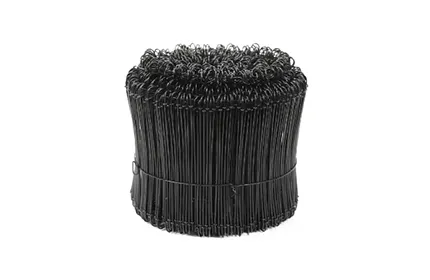-
 Phone:
Phone: -
 Email:
Email:

Effective Techniques for Using Steel Rebar Tie Wire in Construction Projects
The Importance of Steel Rebar Tie Wire in Construction
Steel reinforcing bars, commonly known as rebar, are a crucial element in modern construction. They provide the tensile strength necessary to support buildings, bridges, and other structures. However, the effectiveness of rebar is significantly enhanced through the use of tie wire. This article explores the importance, characteristics, and applications of steel rebar tie wire in the construction industry.
Understanding Steel Rebar Tie Wire
Steel rebar tie wire is a specialized wire used to secure rebar in place during the concreting process. The wire is typically made from cold-drawn steel and is available in various gauges, ensuring flexibility and strength. It is designed to withstand various environmental conditions, ensuring that the integrity of the structure remains intact over time.
The primary purpose of tie wire is to keep rebar in its intended position while the concrete is poured. Proper alignment and spacing of the rebar are essential to maximize the structural strength of concrete. The use of tie wire simplifies this task, allowing construction workers to focus on laying down the concrete without worrying about the potential movement of the rebar.
Advantages of Using Tie Wire
1. Structural Integrity By securely binding rebar together, tie wire ensures that the reinforcement remains in the correct position, promoting even distribution of loads throughout the concrete structure. This helps in preventing potential structural failures and enhances durability.
2. Ease of Use Tie wire is lightweight and easy to handle, which makes it convenient for construction workers. The flexibility of the tie wire allows for quick and efficient tying, reducing labor time and increasing productivity on construction sites.
3. Cost-Effectiveness The use of tie wire is a cost-effective solution for securing rebar. The relatively low cost of tie wire compared to other fastening methods makes it a preferred choice in the industry. Additionally, its ease of installation reduces labor costs.
4. Corrosion Resistance Many tie wires are coated with materials that provide corrosion resistance, which is essential in environments exposed to moisture and chemicals. This characteristic extends the lifespan of concrete structures and reduces maintenance costs over time.
steel rebar tie wire

Different Types of Tie Wire
There are several types of tie wire available in the market, each designed for specific applications. Some of the most common types include
1. Black Annealed Tie Wire This is a popular choice due to its malleability and strength. It is commonly used for securing rebar in various construction applications.
2. Galvanized Tie Wire Coated with zinc, galvanized tie wire offers enhanced corrosion resistance. It is often used in environments where exposure to moisture is a concern, such as coastal regions or areas with high humidity.
3. Stainless Steel Tie Wire For applications that demand the highest level of corrosion resistance, stainless steel tie wire is utilized. While more expensive, its longevity makes it a worthwhile investment for critical structures.
Applications in the Construction Industry
Steel rebar tie wire is widely used in various construction projects, including residential buildings, commercial structures, and infrastructure works like highways and bridges. In large-scale projects, where vast amounts of rebar are required, using tie wire is essential for maintaining project timelines and ensuring safety.
In addition to traditional construction, tie wire has found applications in precast concrete production, where precise rebar placement is critical for the structural integrity of precast elements. The versatility of tie wire further extends to the DIY market, where home improvement enthusiasts utilize it for smaller projects requiring rebar reinforcement.
Conclusion
In conclusion, steel rebar tie wire plays an indispensable role in the construction industry. By ensuring that rebar is securely tied and positioned, it significantly contributes to the strength and durability of concrete structures. With its various types and applications, tie wire remains a fundamental component in achieving safe and reliable construction. As the industry evolves, the demand for quality tie wire will continue to grow, highlighting its importance in the ongoing development of infrastructure around the world.
-
Wire Mesh for Every Need: A Practical SolutionNewsJul.25,2025
-
Steel Fences: Durable, Secure, and Stylish OptionsNewsJul.25,2025
-
Roll Top Fencing: A Smart Solution for Safety and SecurityNewsJul.25,2025
-
Cattle Farm Fencing Solutions for Maximum SecurityNewsJul.25,2025
-
Affordable Iron Binding Wire SolutionsNewsJul.25,2025
-
Affordable Galvanized Wire SolutionsNewsJul.25,2025
-
Wire Hanger Recycling IdeasNewsJul.25,2025








